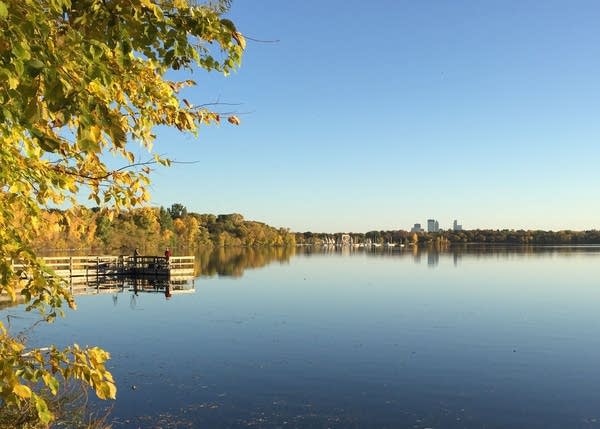Twin Cities company to pay $1.375 million in settlement over alleged pollution

An autumn morning on Lake Harriet in Minneapolis. The lake is one of three affected by "forever chemical" pollution that was the subject of a settlement agreement announced Wednesday.
Luke Taylor | MPR file
Go Deeper.
Create an account or log in to save stories.
Like this?
Thanks for liking this story! We have added it to a list of your favorite stories.


